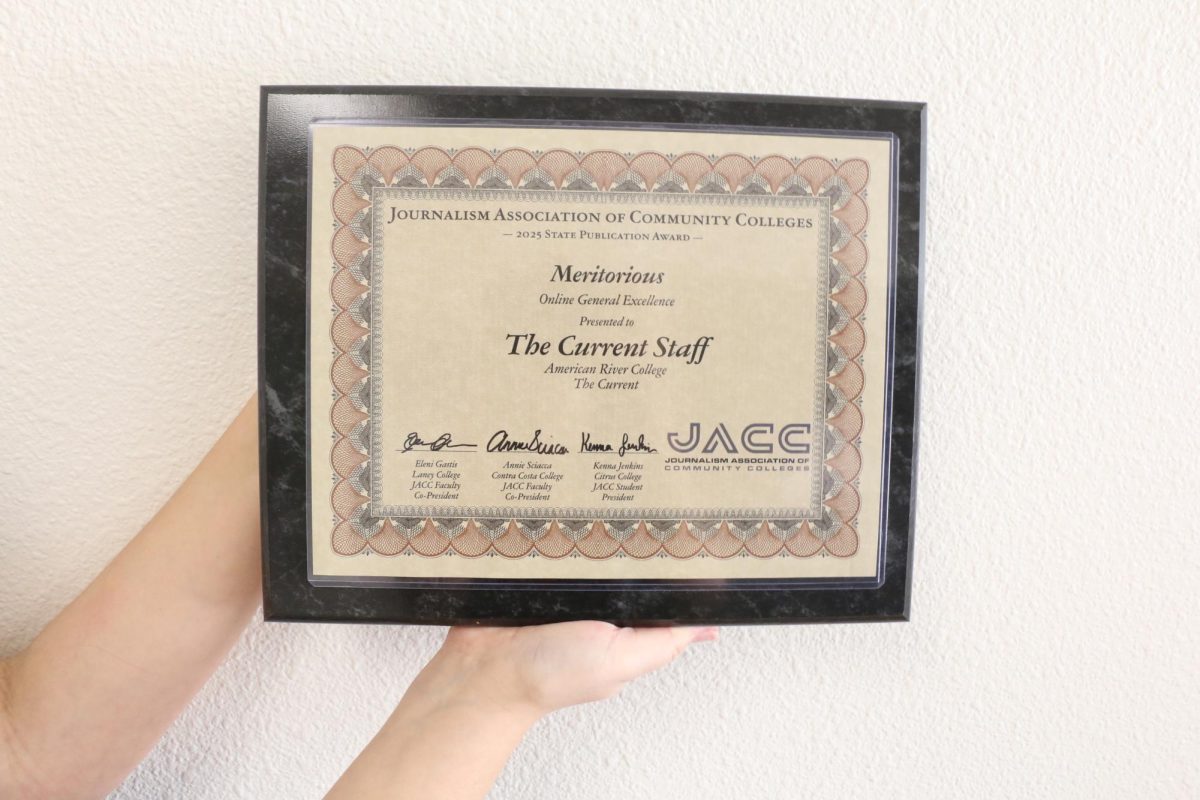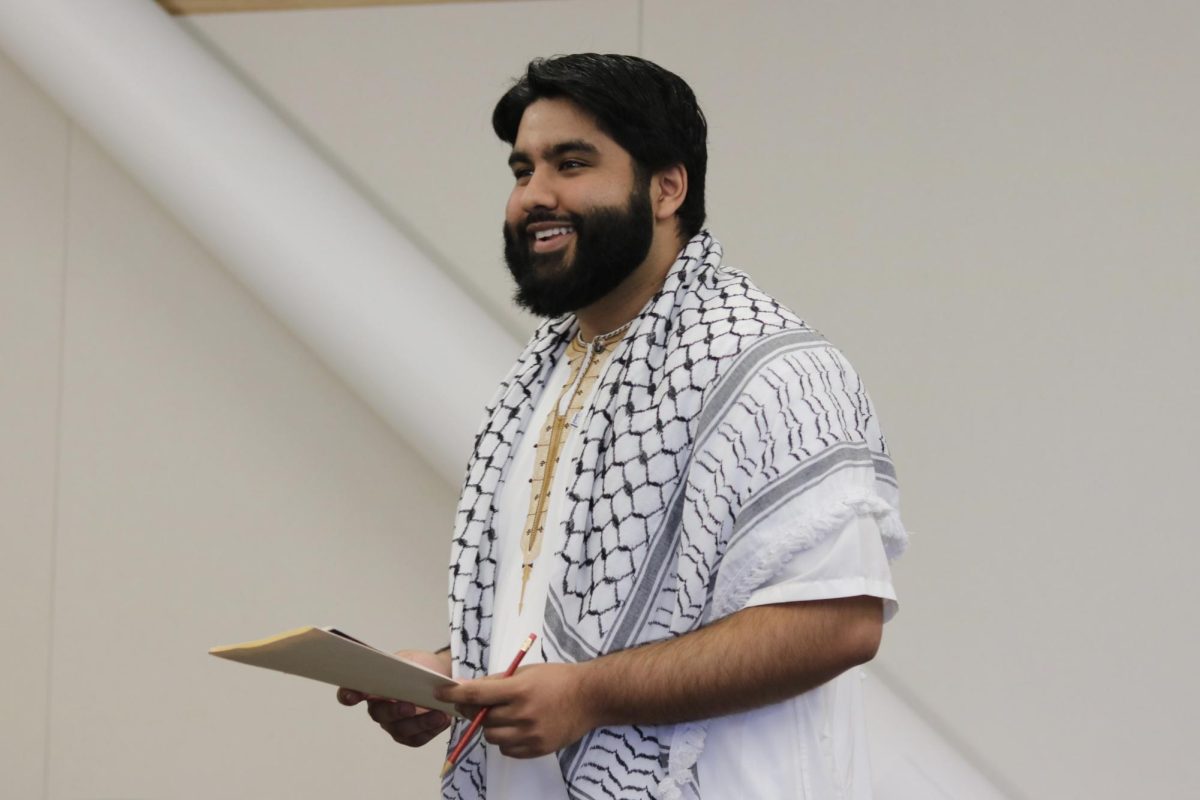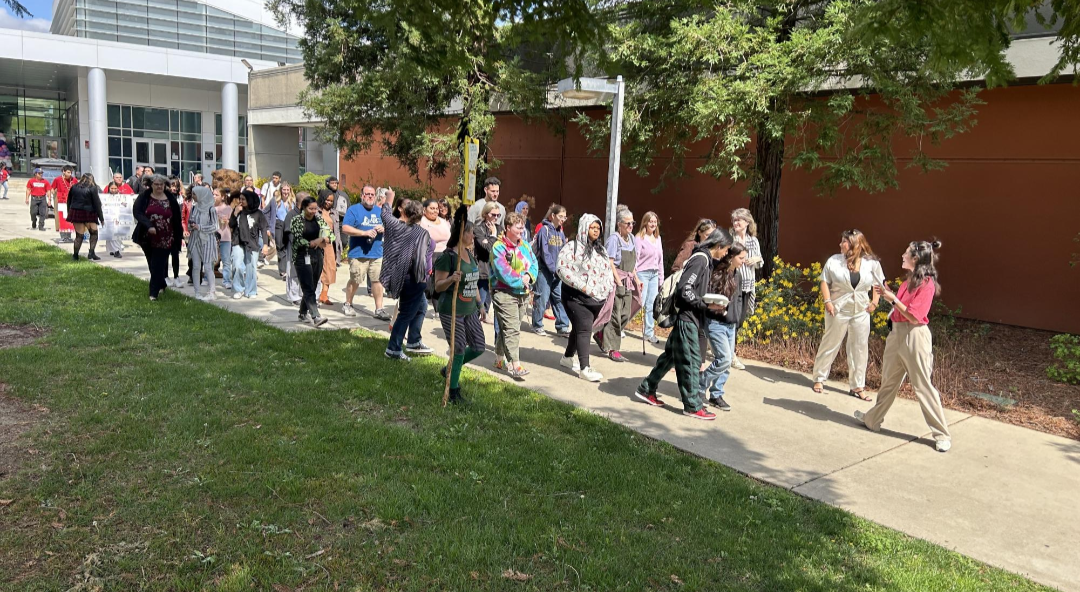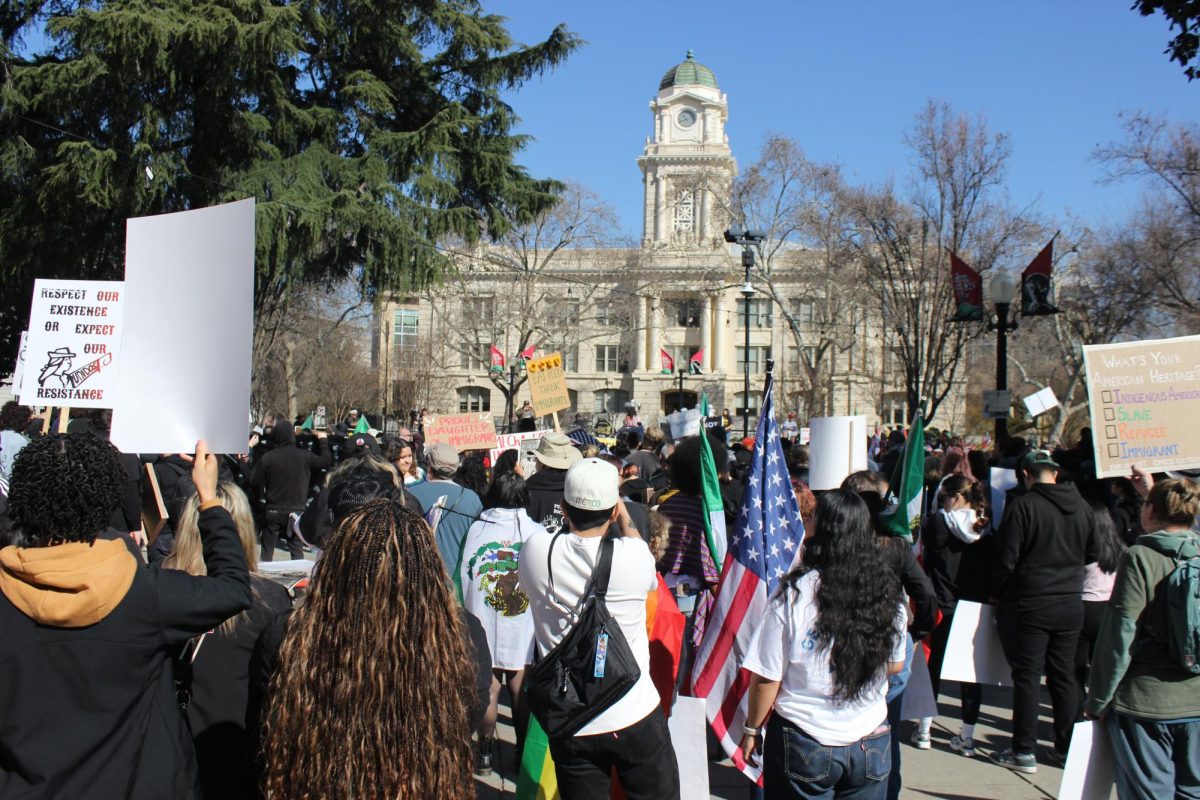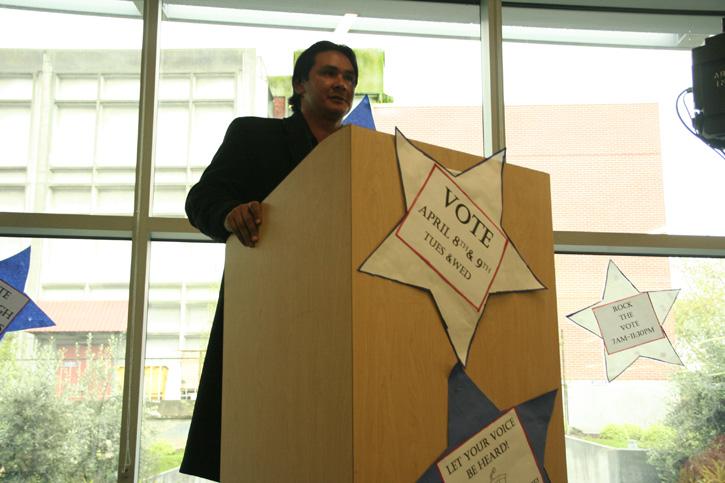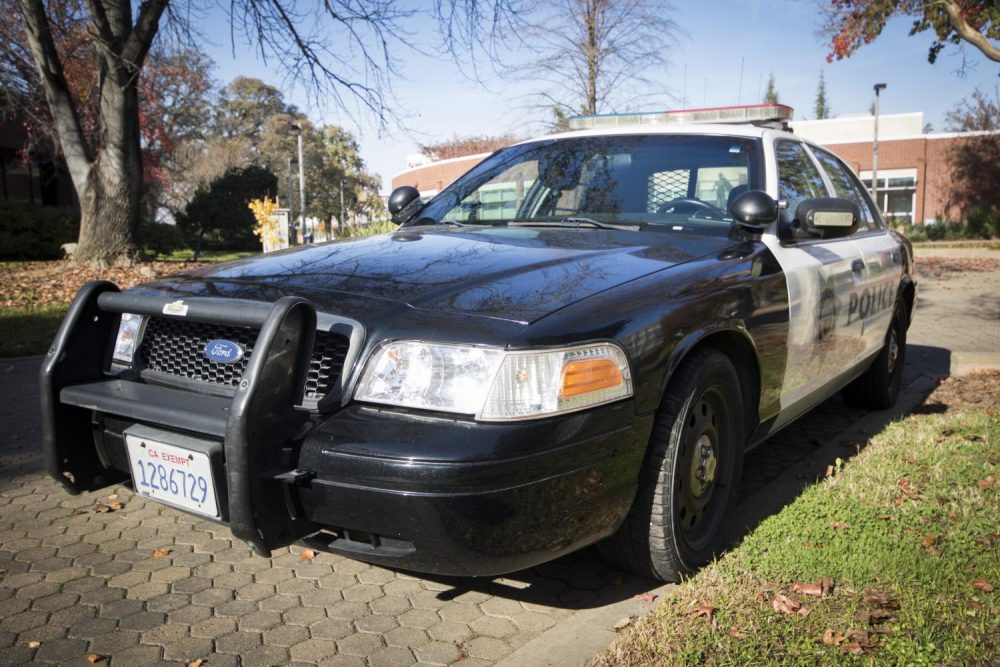They are a family suffering from a profound loss.
On a recent Thursday evening, more than a dozen people filled a large Natomas apartment. Dressed in black, traditional Afghan attires, the family members of Paimana Khanjar, 22, talked about the young woman who was found stabbed to death in southern Delhi, India, on March 3.
Her former fiancé, 23-year-old Omid Milad Hussain Khill, a citizen of Afghanistan, has been charged with the murder.
Jason Khanjar, 27, a United States Army cultural advisor stationed in Afghanistan and brother of Paimana Khanjar, explained that relatives had come over for a Muslim prayer. He positioned a poster-sized portrait of Paimana Khanjar smiling on a table against one wall.
“We called her ‘Pai,’” Jason Khanjar said of his sister, who attended American River College from 2008 to 2011, adding that her name meant “a glass of wine.”
Maryam Assadi, 31, who Jason Khanjar introduced as his wife, joined him on the couch while his younger sister, Madina Khanjar, 17, a student at Inderkum High School, sat cross-legged on the carpet across from them, fingering the tail ends of her black head scarf.
They smiled as they remembered the wonderful, happy person Paimana Khanjar was, but their eyes reflected an incomprehensible sadness.
“She had a clean heart, she brought out the good in you,” Assadi said. “She loved meeting people and making friends. She loved her family.”
Born on April 22, 1990 in Afghanistan, Paimana Khanjar was the second of three children. Jason Khanjar, Paimana Khanjar, Madina Khanjar and their mother, Nasreen Khanjar, 45, moved to Florida in 2003 before coming west to join family in Sacramento.
In the summer of 2008, Paimana Khanjar enrolled at American River College to begin her studies as a psychology major. In November 2011, Paimana Khanjar followed in the footsteps of her brother and also signed on to interpret for the U.S. Army as a cultural advisor.
Her interest in government work grew with her new job, and she expressed the desire to be a detective, according to her family.
Their father passed away in Afghanistan “a long time ago,” said Jason Khanjar.
“(Paimana Khanjar) was the man of our house when (Jason Khanjar) left (for duty). She was our backbone. She was like an angel, she lit up our house,” Madina Khanjar said.
In her native tongue, Nasreen Khanjar tearfully praised Paimana Khanjar’s “very kind heart.”
Paimana Khanjar looked after Madina Khanjar and often talked of buying her a house; she was always thinking of her family, Nasreen Khanjar said.
On Feb. 24, Nasreen Khanjar, Madina Khanjar and Paimana Khanjar’s close friend, Melissa Colon, 21, dropped her off at the San Francisco International Airport for her flight to India.
According to the Khanjar siblings, their aunt, Noria, was sick and Paimana Khanjar went to her aid. “It was supposed to be a 10-day vacation,” Assadi said.
Paimana Khanjar and Khill met in 2009 during a family trip back to Afghanistan.
According to Jason Khanjar, Khill learned that the family was visiting from the United States and brought his family to meet them. The Khanjars said that Khill wasn’t employed, but came from a prosperous family.
The Khanjars initially found Khill and his family to be “really nice people,” and thought that he would be for a nice fit for Paimana Khanjar.
“In our culture,” said Jason Khanjar, “when we tell the girl that he’s a good guy for (her), (she) will accept it.”
Paimana Khanjar and Khill were engaged in the Khanjars’ hometown of Mazar-e-Sharif. “Pai was really happy about the engagement,” Jason Khanjar said.
However, after doing a background search on Khill, Jason Khanjar said he called Khill and ended the engagement. Jason Khanjar said that he was suspicious of Khill’s political ties and thought that Khill’s interest in Paimana Khanjar served a different motive than genuine affection.
Multiple interview requests by The Current about the crime and Khill’s background to the police in New Delhi, to the U.S. Embassy in New Delhi, and to the Indian Embassy in San Francisco, were not answered.
Jason Khanjar said his sister and Khill were together for one month. After the broken engagement, Khill continued reaching out to Paimana Khanjar, her family said.
“She had to change her phone number, my mom had to change her number, everyone in the family had to change their numbers so that he would stop contacting us,” Assadi said. “He was trying to get a hold of her for the past three years.”
Concerned by Khill’s attempts to reach Paimana Khanjar, Jason Khanjar worried about his sister’s trip to India, which is relatively close to Afghanistan.
He said he was afraid that Khill would find out through their family in India that Paimana Khanjar was visiting and that he would try to see her.
The family was adamant that Paimana Khanjar had no plans to reunite with Khill in India.
The Khanjars can only speculate how Khill might have been privy to Paimana Khanjar’s visit, just as they can only theorize the sequence of events leading up to the stabbing.
“We still haven’t sat down and talked to (Noria),” said Assadi. “We’ve been too busy.”
On the morning of March 3, Nasreen Khanjar said she called India to check on her daughter.
Noria informed her that Paimana Khanjar was out with the neighbor’s daughter, Sonia, when Sonia’s scream interrupted their conversation, Nasreen Khanjar said.
Nasreen Khanjar then urged Noria to check on the commotion. With the call still connected, Nasreen Khanjar heard Noria scream: “Paimana! Paimana!”
Noria didn’t return to the phone, and Nasreen disconnected and called Noria’s neighbor, known only as Latifa, who answered and said that Paimana Khanjar had just been murdered.
Assadi said she did her best to calm Nasreen Khanjar and Madina Khanjar, and called the neighbor herself.
Latifa told Assadi that there was a girl in the room, and that the police had sealed the room. She would no longer verify the identity of the body, and Assadi called the American Embassy in India to try to get confirmation.
“It was a long process. It was a mess,” Assadi said. But at 8 p.m. that night, Paimana Khanjar was confirmed as the victim of the fatal stabbing.
Khill was apprehended just as he was about to board a plane back to Afghanistan and later confessed to the killing, according to reports by The Times of India.
On March 8, Jason Khanjar arrived in San Francisco from Afghanistan, the same day Paimana Khanjar’s body arrived. It was also Madina Khanjar’s birthday.
Prayers and services were held for Paimana Khanjar the following day.
Several media outlets reported that it was a crime of passion, but the Khanjars refute this claim, adding that reporters for these articles never called the family.
They also believe the crime was premeditated.
The family explained that they had accessed what they believe to be Khill’s Facebook profile, where multiple posts referenced killing. The profile was filled with “disturbing” images, said Madina Khanjar. On Feb. 8, an illustration of a woman with a slash on her neck was posted.
The family said Paimana Khanjar’s throat was cut in the same area.
The family continues to work closely with the U.S. Embassy and police in India, but expressed concerns about what they said was corruption within the country; with Khill’s connections, and his family’s wealth, he might be able to bribe himself to freedom.
Assadi said Paul Herman, chief of American citizen services at the U.S. Embassy in New Delhi assured the Khanjars that media coverage of the high-profile case would reduce the chances of that happening.
The family said they were concerned about the justice system, and fearful that Khill might be able to pay off someone and be freed after a year or two.
However, Assadi said that they feel good knowing that, at the moment, Khill is in custody.
Thankful for the support of family and friends, the Khanjars are “hanging in there” because “we don’t want something to happen to anyone else’s daughter,” said Jason Khanjar.
“Sometimes I feel like somebody will call, and say that everything is not true, and she’s here; she’s coming back,” said Jason Khanjar.
“We’re still waiting for that call,” Assadi added.
Additional reporting by Mark Lewis and Trevor Horn.
vorns3@imail.losrios.edu



